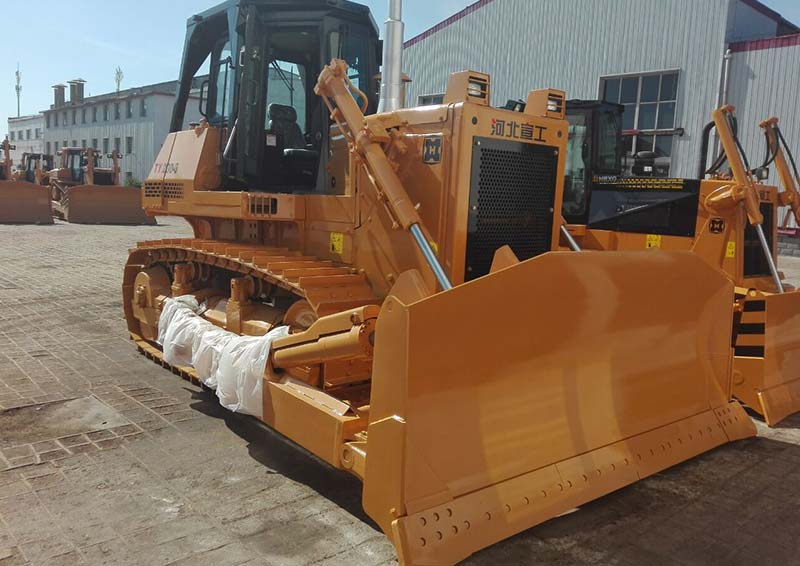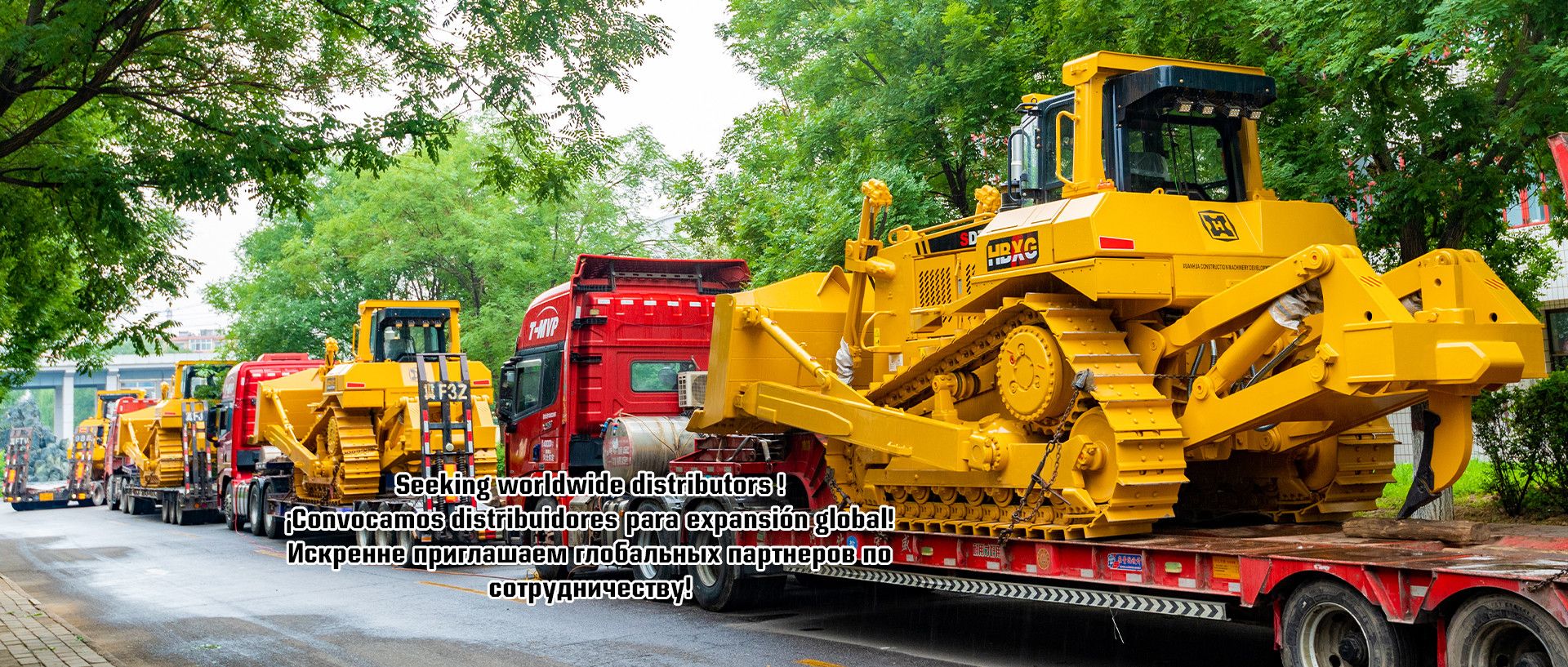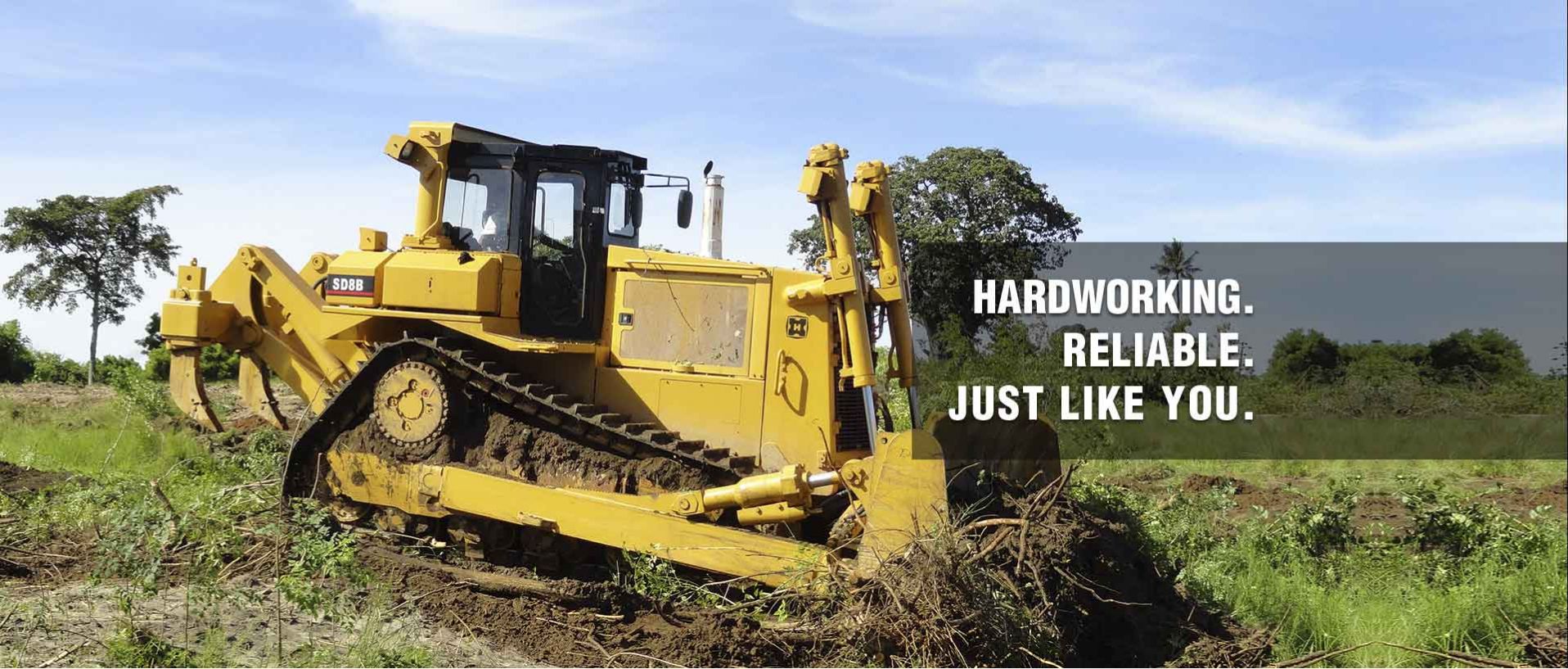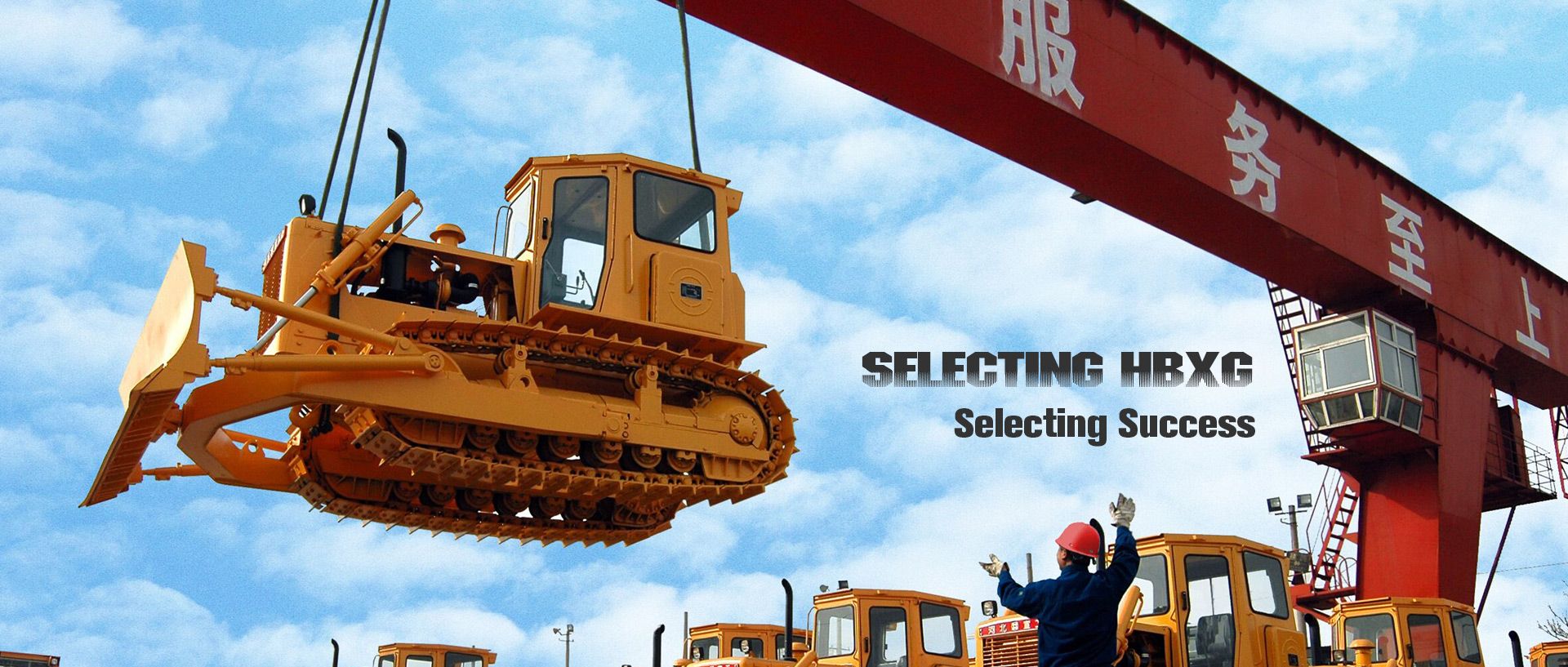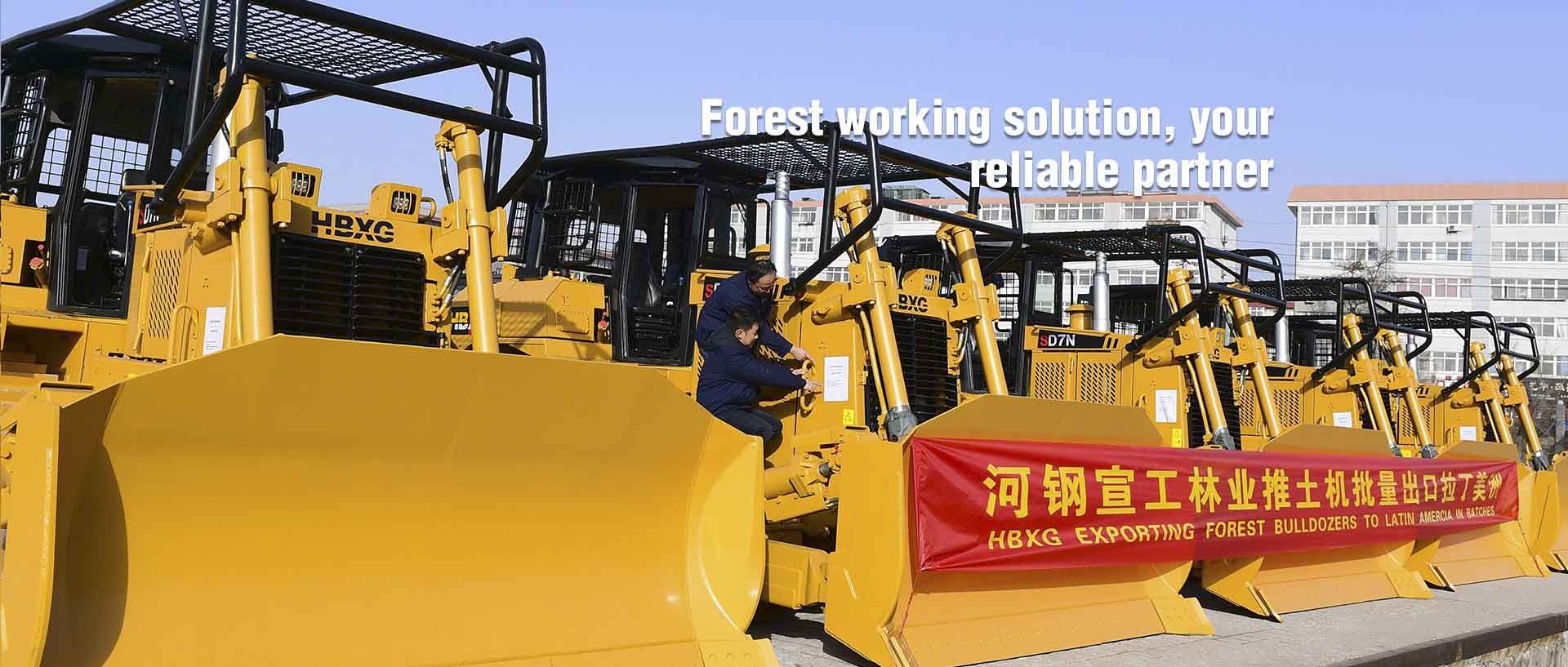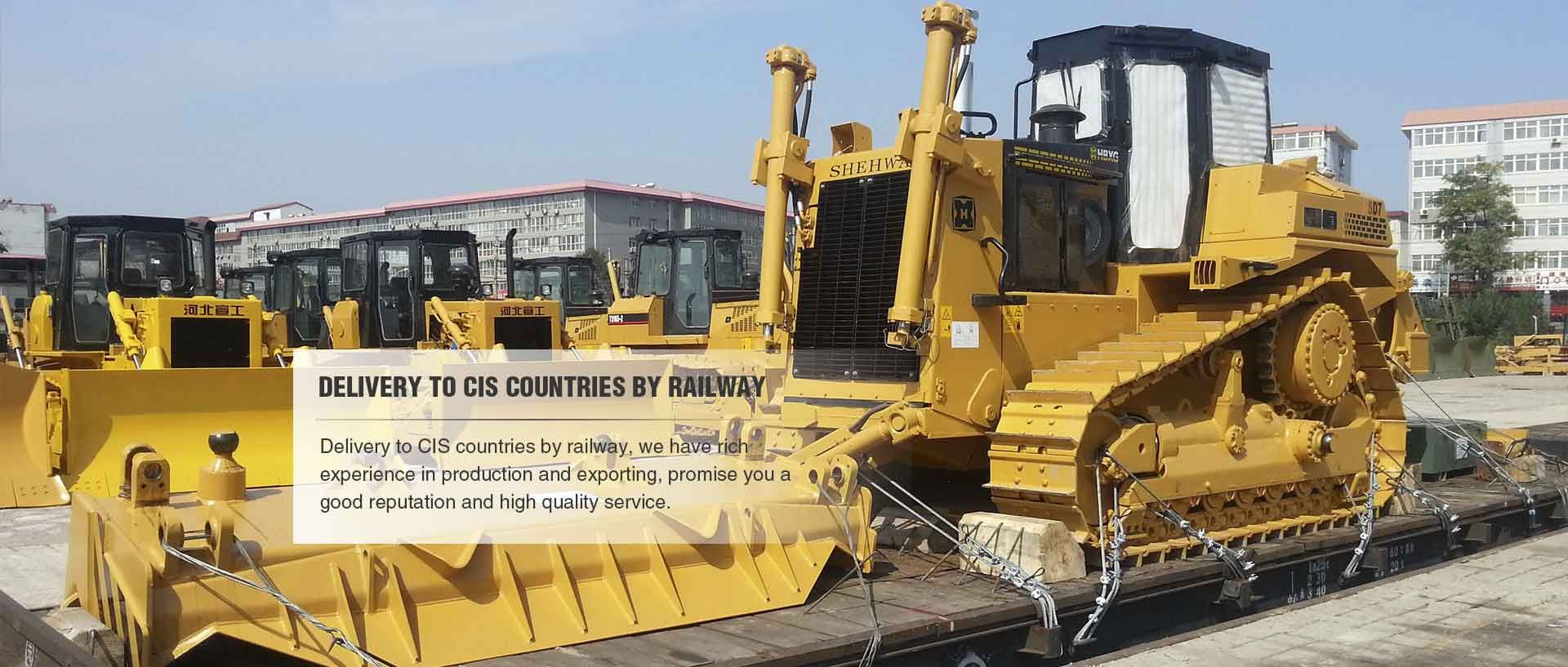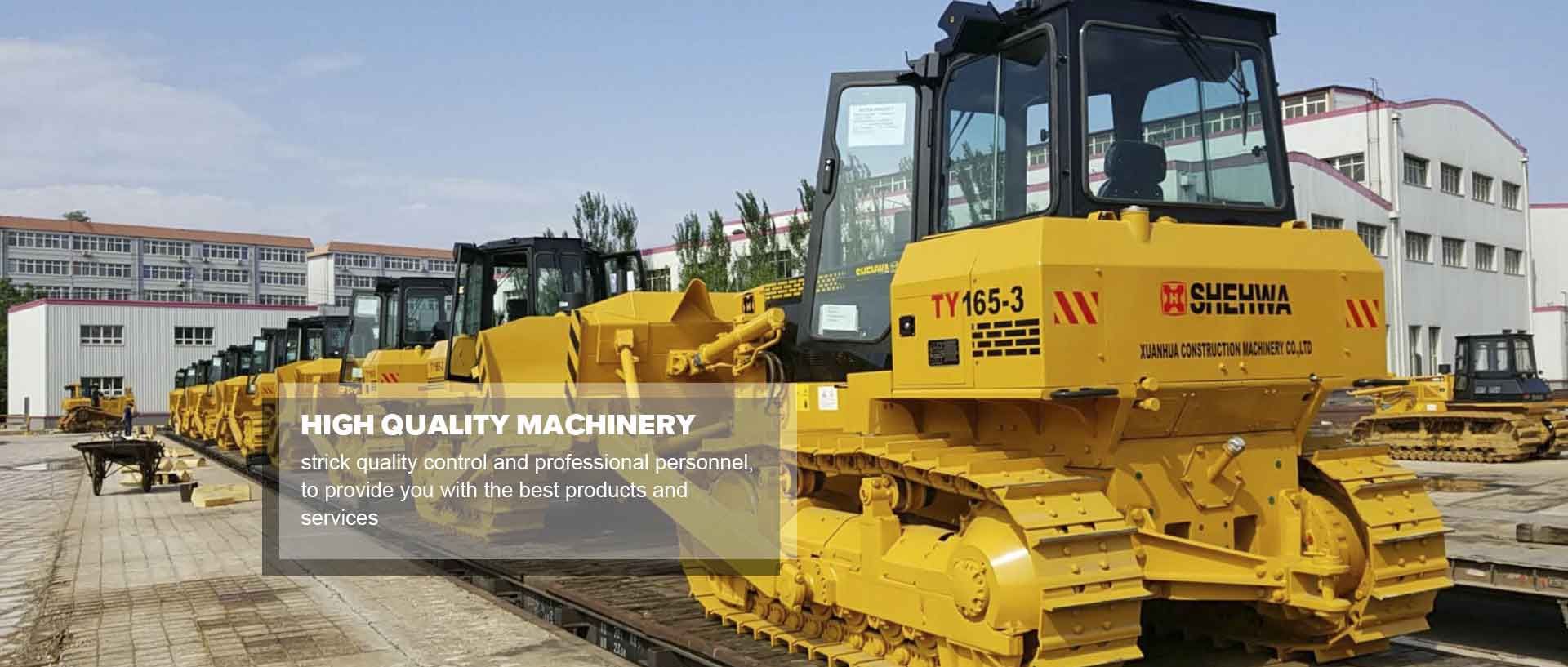Analysis Of The Wearable Parts Of Crawler Bulldozers
 Sep. 30, 2018
Sep. 30, 2018
Let's take a look at the parts where crawler dozers often wear out.
First, the wear of the bulldozer crawler.
In a running gear of a dry track (relative to a lubricated track and a sealed track), the track is not lubricated, causing wear due to relative movement between the track pin and the pin sleeve during operation. Wear between the pin and pin bushings in the track is unavoidable and normal, but this wear will cause the pitch of the track to elongate and the track to be too large. This wear continues, and the track will move sideways, causing wear on the guide wheels, the roller, the carrier roller, the drive gear, etc. and also the wear of the track pin and sleeve.
Second, the wear of the bulldozer drive wheel.
The wear of the drive wheel teeth often occurs at the root of the teeth, the front and rear sides, the left and right sides, and the top of the gear teeth. When the bulldozer with reliable quality travels forward and the gears hold up the track pin bushing, the wear occurs on the front side of the gear teeth; conversely, when the bulldozer travels backward, the wear occurs on the rear side of the gear teeth. When the track is too loose, the track deflection occurs, and the teeth impact the side of the chain link and cause wear on the tooth side of the drive wheel.
Third, the traction of the bulldozer guide wheel.
The wear of the guide wheels is due to the raceway surface of the contact link segments, and the wear of the guide wheel body projection width is due to the side contact with the link segments. The performance is as follows: the guide wheel body has a reduced width of the protrusion, the diameter of the guide wheel body raceway surface is reduced, and the diameter of the guide wheel body is reduced.
Fourth, the wear of the crawler bulldozer carrier sprocket.
The wear of the carrier roller is caused by the contact of the raceway surface of the chain link. The performance is as follows: the width of the flange of the carrier roller is reduced, the outer diameter of the raceway surface of the carrier roller is reduced, and the outer diameter of the flange of the carrier roller is reduced.
